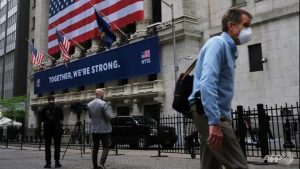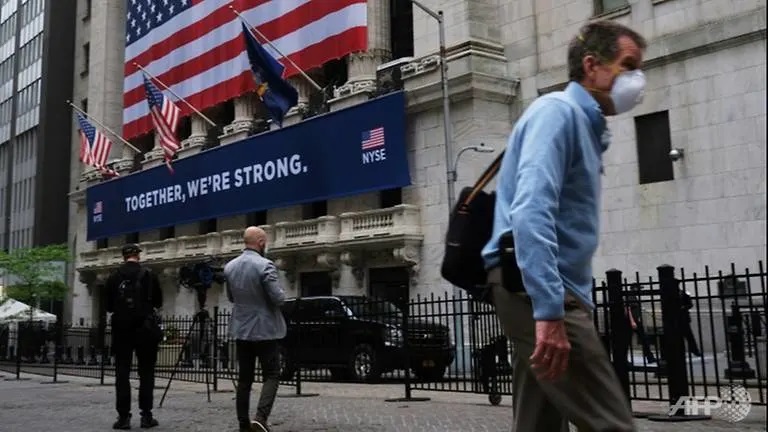
The New York Stock Exchange reopened its floor on May 26 after a two-month closure due to the coronavirus, with traders donning masks and separated by plexiglas.
NEW YORK: Wall Street stocks ended lower on Thursday (May 28) following a late-afternoon retreat on growing US-China tensions, as markets digested more bad economic data following coronavirus shutdowns.
The Dow Jones Industrial Average finished at 25,400.64, down 0.58 per cent and ending a three-day winning streak.
The broad-based S&P 500 fell 6.40 points (0.21 per cent) to 3,029.73, while the tech-rich Nasdaq Composite Index shed 43.37 points (0.46 per cent) to 9,368.99.
Stocks had been in positive territory most of the day but pulled back after US President Donald Trump announced he would hold a press conference on China on Friday.
The announcement follows strong US criticism of a security law allowing China to tighten its grip on Hong Kong.
Trump has also blamed Beijing for the coronavirus outbreak that has killed 100,000 Americans and added new uncertainty to his re-election prospects.
The twin developments have investors fearing the return of a revived US-China trade war.
“At the moment, it’s just talk, primarily, but you can’t ignore it completely because as we’ve seen in the past with this kind of thing, once it escalates, it escalates very quickly,” said JJ Kinahan, chief market strategist at TD Ameritrade.
Labor Department data showed another 2.12 million people filed for unemployment in the United States last week, pushing total layoffs since the start of the coronavirus crisis to more than 40 million.
New orders for US manufactured goods also plunged 17.2 per cent in April, after a similar steep decline in March, the Commerce Department reported.
Though terrible, the data was not significantly worse than expected and investors shrugged it off for most of the day.
Major air carriers had a bad day after American Airlines said it was cutting 30 per cent of its management and support staff, the latest example of belt-tightening in the industry as it faces a severe downturn.
American lost 8.4 per cent while United Airlines shed 5.9 per cent.
Dollar Tree surged 11.6 per cent after the no-frills retailer reported higher sales, with same-store sales at its chain Family Dollar surging 15.5 per cent.



